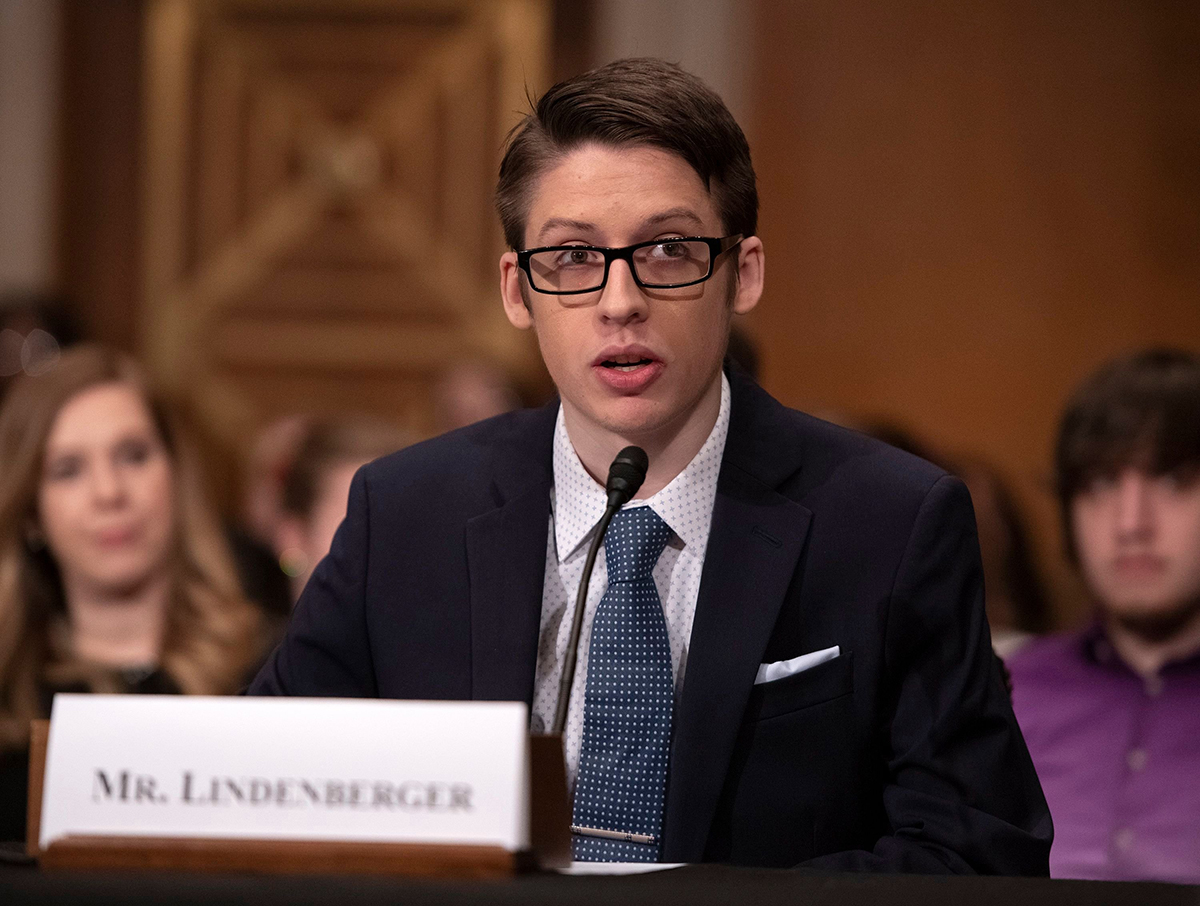Measles was declared eliminated in the U.S. in 2000, but since January this year, 764 cases have been reported in 23 states—the largest outbreak in a quarter century. And like the majority of children and teens who have been vaccinated against the disease, Ethan Lindenberger was relieved that he had received his immunizations. Unlike most of his friends, however, Lindenberger didn’t get his shots as a child but only received them a few months ago, as an 18 year old. A Senate Committee asked him to testify about his decision in March, and he shared his story about getting immunized against his mother’s wishes.
Growing up, the Ohio high schooler knew his mother believed the vaccinations contributed to autism and brain damage. But he didn’t really question her views until he turned 15, and became more active on social media where he learned through comments on his mother’s posts revealed that not everyone shared her anti-vaccination views.
Confused, he asked her about the criticism but says she didn’t engage in much discussion, assuring him that people who thought vaccines were safe were simply wrong. So he turned to the Internet to do his own research and found information from the Centers for Disease Control and Prevention (CDC), which he considered to be a credible source, that confirmed there was no link between vaccines and autism. His mother continued to dispute the report. “She said, well, that’s what they want you to think,” he says. “And for me, that really did not address how substantial the evidence was. That’s when I started to do more research and started to think, maybe she’s wrong.”

That deeper dive into the studies on vaccines and their benefits as well as their harms led Lindenberger to conclude that his mother was, indeed, wrong to avoid them. It also convinced him that he needed to get vaccinated, not just to protect himself from infectious diseases like measles, mumps and polio but to protect the broader community. (Herd immunity can keep rates of infectious diseases low and protects at-risk populations, like infants, the elderly, and people suffering medical conditions that prevent them getting vaccinations.)
Knowing his parents disagreed with his decision, last November Lindenberger turned to Reddit with questions about whether he could still get vaccinated as an adult. He received over a thousand supportive responses directing him to his local public health department.
Lindenberger is now all caught up with his vaccines, and in his Congressional testimony, emphasized the dangers of online disinformation. He’s also enjoying providing advice to other children in similar situations, who are looking to reconcile their desire to get vaccinated without defying or undermining their parents.
For them, Lindenberger provides reassurance and encouragement to learn all they can and to make their own decisions about vaccine safety based on the scientific evidence. “I never questioned my mother as a parent, as someone who loves me and who cared for me. I questioned the sources she was going to, and the information she had,” Lindenberger says. “I tell them to keep having discussions with their parents until you have to make a decision for yourself. I also explain that misinformed people aren’t evil, but that misinformation still isn’t okay.”
- Donald Trump Is TIME's 2024 Person of the Year
- Why We Chose Trump as Person of the Year
- Is Intermittent Fasting Good or Bad for You?
- The 100 Must-Read Books of 2024
- The 20 Best Christmas TV Episodes
- Column: If Optimism Feels Ridiculous Now, Try Hope
- The Future of Climate Action Is Trade Policy
- Merle Bombardieri Is Helping People Make the Baby Decision